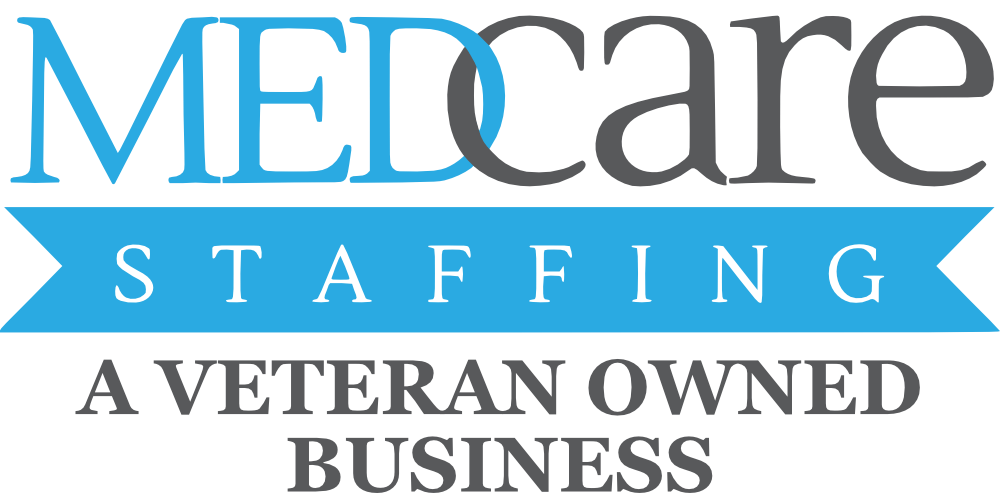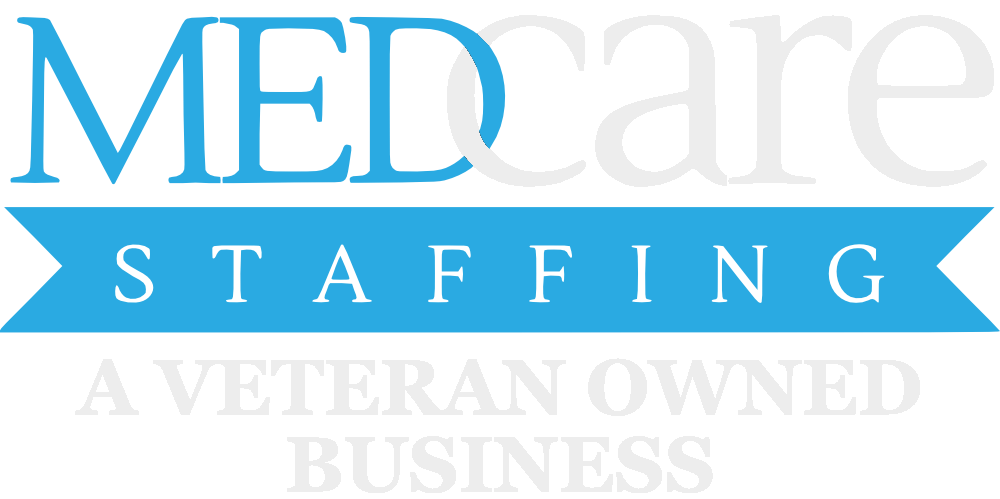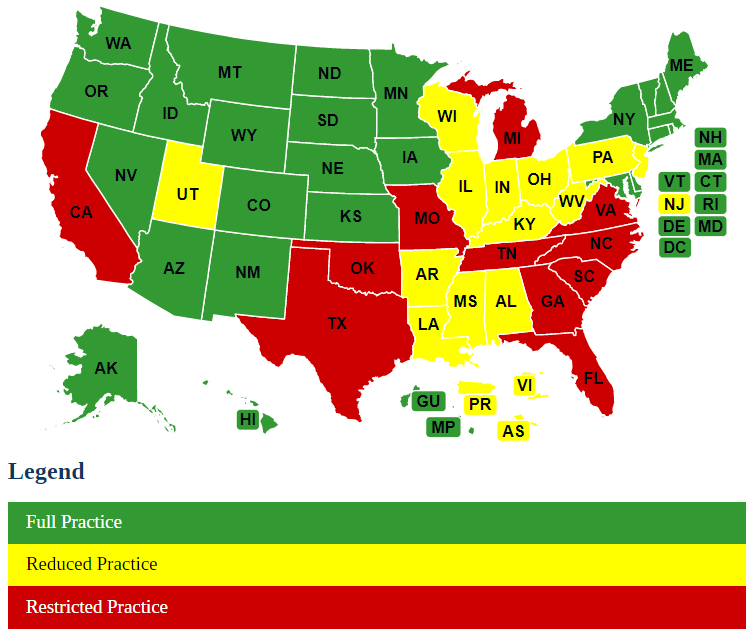
Covid-19 shined a light on the problematic healthcare system in America with over 83 million people lacking adequate access to primary care. Due to the growing Physician shortage, more states are granting Full Practice Authority (FPA) to Nurse Practitioners. According to The Complexities of Physician Supply and Demand: Projections from 2019 to 2039 the American Medical Colleges (AMC) states there will be a shortage of 37,800 to 124,000 physicians with in the next 12 years.
Nurse Practitioners Bridging the Gap

The NP role has been ranked the number one “best healthcare job” for 2022 by U.S. News. NPs are registered nurses who are licensed by the Board of Registered Nursing in the state where they may be practicing. With an expanded scope of practice, the NP’s role can vary from state to state depending on the Full Practice Authority laws in that state.
If it wasn’t for the great visionary Dr. Loretta Ford, the nurse practitioner role would not exist. Dr. Ford discovered that there was a need for healthcare providers in underprivileged communities. She then realized that nurses with expanded roles who gained specialized training to make clinical decisions on their own would be the perfect solution.
With the passage of the Medicare and Medicaid legislation in 1965, the need for NP’s increased. A major barrier to practice was direct reimbursement due to NP’s not being licensed. NP’s started advocate for themselves at the state level beginning in the late 1980’s and early 1990’s.
Full Practice Authority
NP’s have been lobbying for FPA and advocating for the expansion for their role since 1994. According to the American Association of Nurse Practitioners, Full Practice Authority (FPA) authorizes nurse practitioners to evaluate patients, diagnose, interpret and order diagnostic labs, initiate and manage treatments. This includes prescribing medications exclusively under the licensure under the authority of the state board of nursing.
Current states with FPA include: Alaska, Arizona, Colorado, Connecticut, Delaware, District of Columbia, Guam, Hawaii, Idaho, Iowa, Kansas, Maryland, Massachusetts. Minnesota, Montana, Nebraska, Nevada, New Hampshire, New Mexico, New York, North Dakota, Northern Mariana Islands, Oregon, Rhode Island, South Dakota, Vermont, Washington. and Wyoming.
The Newcomers
The Golden State
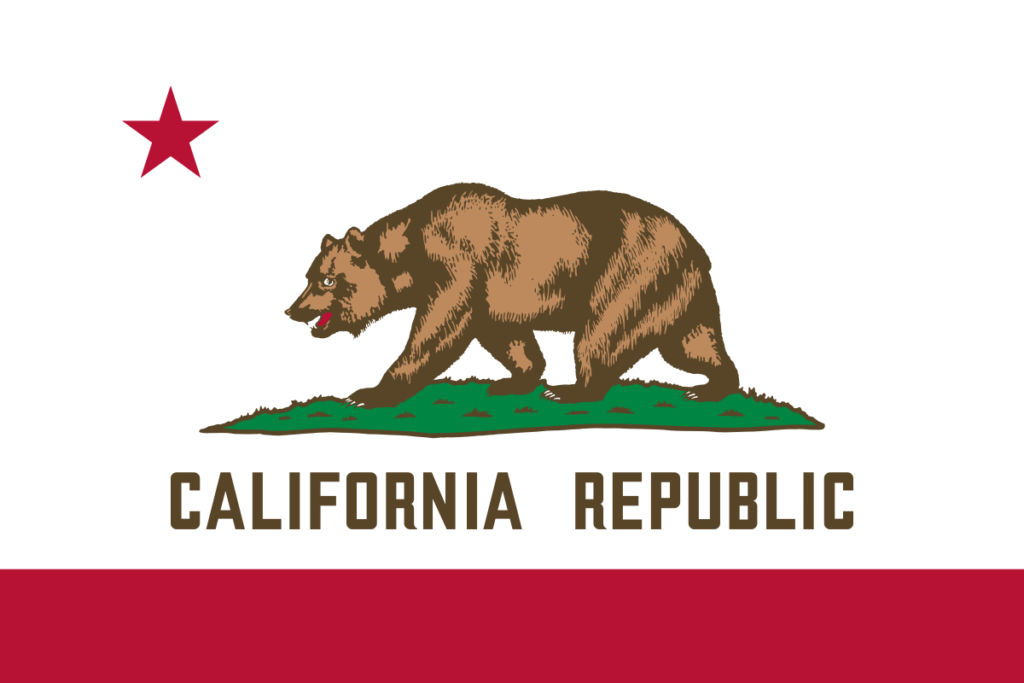
Due to the serious shortage of primary care physicians in California, AB290 granting FPA to NP’s was signed into law on September 29, 2020 by Governor Gavin Newsom. The main focus of AB290 is to improve quality access to healthcare. California’s FPA will go into full effect in January 2023. AB290 requires the California Board of Registered Nursing to define the minimum standards for an NP to transition to independent practice. Once that has been met, the NP can prescribe specific functions which include “ordering and interpreting diagnostic procedures, certifying disability, prescribing, administering, dispensing and furnishing controlled substances.”
The Big Apple
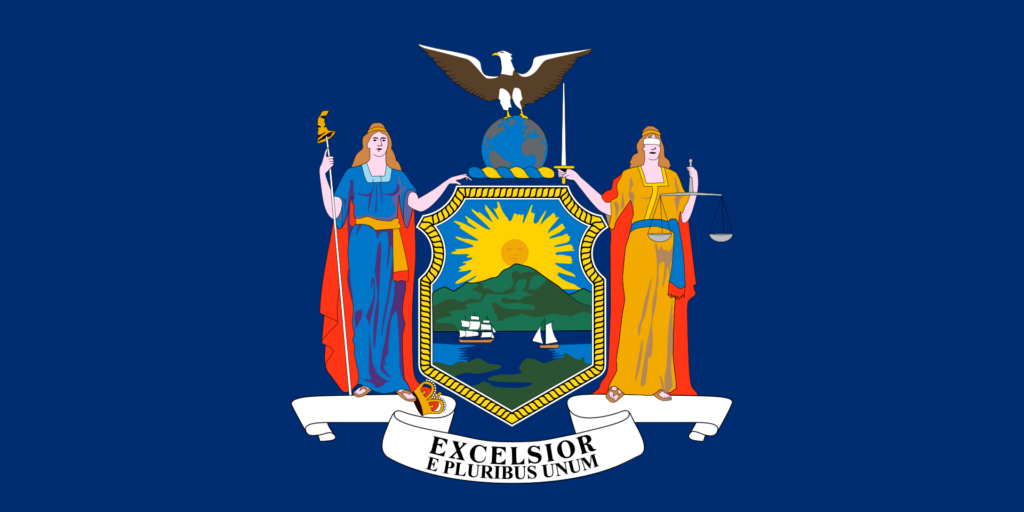
New York is now the 25th state to grant NP’s full practice authority. On April 9, 2022 Governor Kathy Hochul signed into the state budget of New York that NPs who have more than 3,600 hours of experience no longer are required to have a formal relationship with a medical doctor to practice. According to the AANP, NP’s in the state of New York can now evaluate patients, diagnose, order and interpret diagnostic tests, initiate and manage patient treatments as well as prescribe medications.
Prior to waiving this law, New York NP’s had a “reduced” practice authority. NP’s were required to have a ‘written practice agreement’ with a physician in their specialty area. This stated that the physician would review patient records, make referrals, be on hand for consultations. Furthermore, if there was a disagreement, the physician would have the final word. Stephen Ferrara, DNP FNP-BC, president-elect of the AANP stated: “NP’s in New York, often times were required to pay physicians in order to have this contract agreement which did not serve the healthcare system very well. New Yorkers now have a greater advantage to access healthcare for both their physical and mental well-being.
The Sunflower State
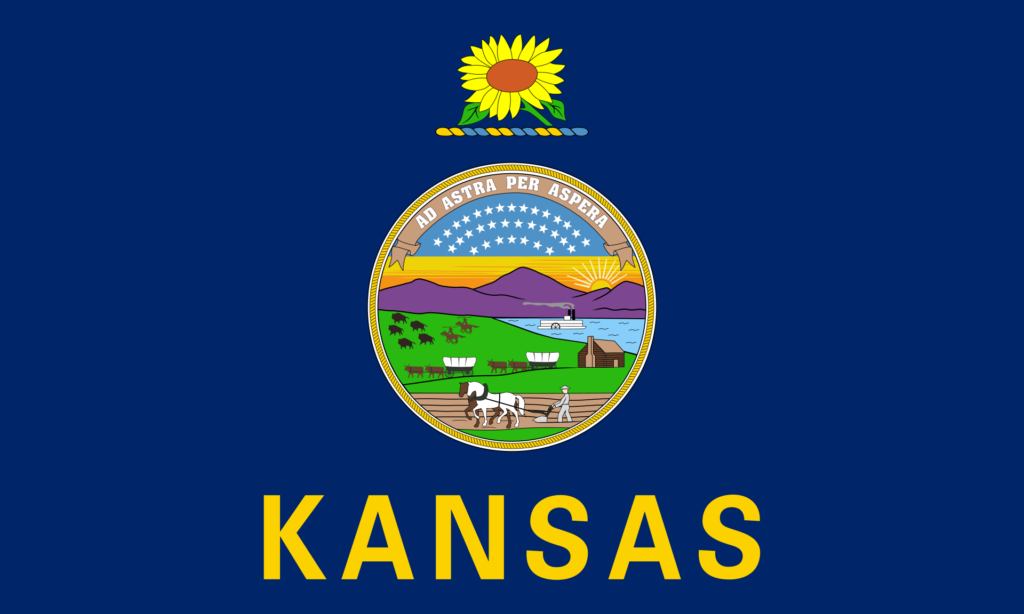
Kansas is experiencing a healthcare shortage in its rural areas. On April 22, 2022 Governor Laura Kelly signed Senate Substitute for House Bill 2279, a bipartisan bill, which expands the role of advanced practice registered nurses (APRN’s) removes barriers for them to practice independently. Governor Kelly stated that House Bill 2279 “will empower APRN’s to decrease local and reginal care gaps.” Under HB2279, APRN’s are required to comply with the Federal Drug Enforcement Administration requirements for safely prescribe controlled substances, as well as maintaining malpractice insurance and national certification for licensure as an APRN.
The First State

Governor John Carney signed HB141 and H21 into law on August 4, 2021, improving access to primary healthcare to the 1 million residents of Delaware. Bethany Hall is Delaware’s Lt Governor and a nurse. When both HB141 and H21 were approved by 20-1 votes, Lt. Governor Hall was present presiding over the state senate.
HB141 allows NP’s and APRN’s to practice to the full extent of their training removing the prior oversight contract previously needed between a physician and an NP. Some employers in Delaware may still require a physician NP practice contract. HB 21 allows for a ‘multistate” licensure entering the APRN interstate licensing compact. North Dakota and Delaware are the only 2 states to pass legislation even though 37 states are members of the Nurse Licensure Compact for both Registered Nurses and Licensed Vocational Nurses. AARP recently conducted a study in Delaware and found that 86 percent of the senior residents of Delaware stated that having greater access to healthcare was important to them.
States on the FPA Horizon
The Great Lakes State
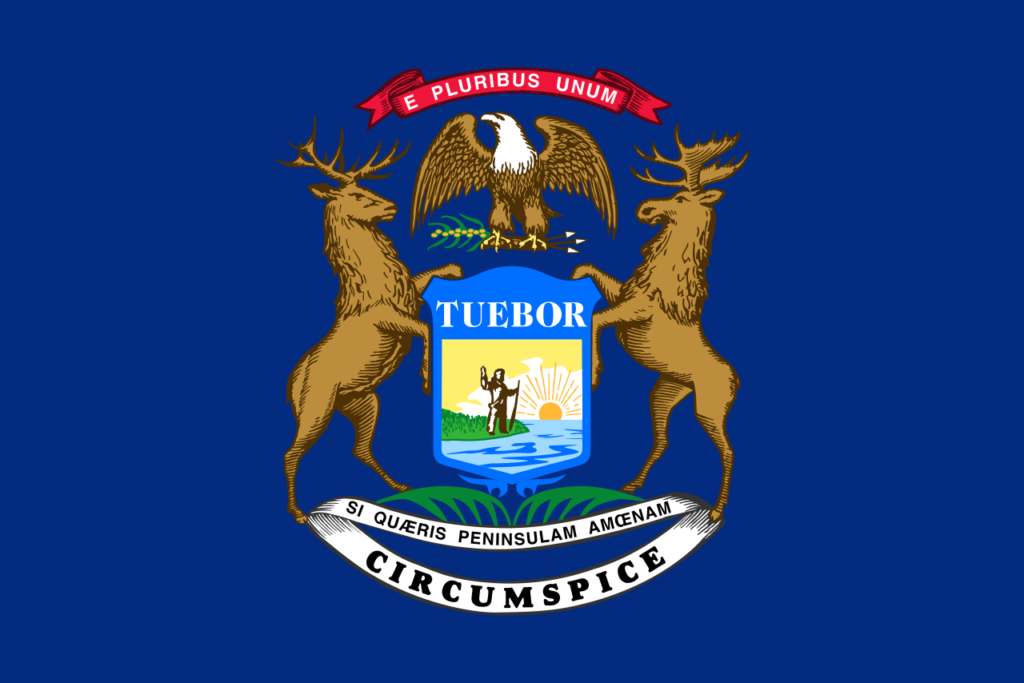
Michigan introduced SB680, a bill allowing FPA to NP’s on October 5, 2021. The bill is sponsored by Senator Rick Otman and co-sponsored by Senator Jeff Irwin, Senator Sylvia Santana, Senator Jim Runestad, and Senator Tom Barett. The bill will amend Public Act 368 0f 1978, inserting and changing language which states “The administrator may issue a controlled substances license to an individual licensed as a registered nurse under part 172 if the individual has been granted a specialty certification as a nurse practitioner by the Michigan board of nursing under section 17210.”
Improving Access to Healthcare Through FPA
The U.S. is facing a significant healthcare crisis with physician shortages in primary care and psychiatry. Currently, there are more than 355,000 licensed NP’s in the U.S. who provide healthcare in communities of various sizes and demographics nationwide. NP’s are known to provide a high level of service and care to over 1 billion patients a year. Research shows that states who adopt FPA have a better advantage to improve access to healthcare, address healthcare disparities as well as increase their workforce.
MedCare Staffing Providing the Highest Quality of Healthcare Providers

MedCare Staffing provides a hands-on professional leadership team. Whether you are a healthcare provider looking to work locum tenens or you are looking to hire healthcare coverage, MedCare Staffing offers dedicated professional support through the entire tenure. With 70 years of combined recruiter experience, we have a reputation for success. To speak to a recruiter today click here.
